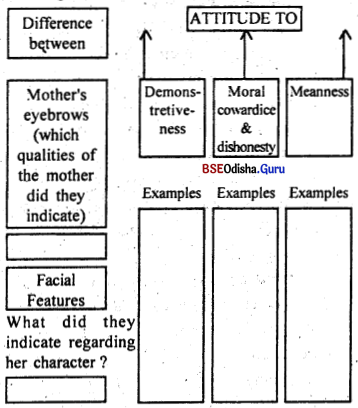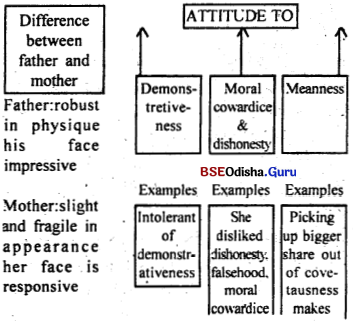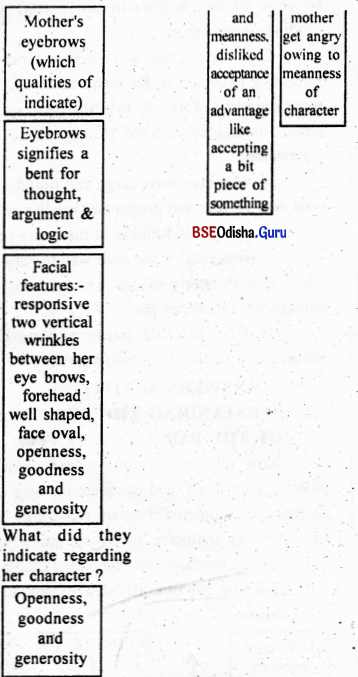Odisha State Board CHSE Odisha Class 12 Invitation to English 2 Solutions Non-Detailed Chapter 6 Stay Hungry Stay Foolish Textbook Exercise Questions and Answers.
Class 12th Invitation English Non-Detailed Chapter 6 Stay Hungry Stay Foolish Question Answers CHSE Odisha
Stay Hungry Stay Foolish Class 12 Questions and Answers
Unit – 1
Gist:
At the outset, Steve Jobs narrates the first story related with his life. Jobs says that his biological mother was a young, unmarried college graduate student. She was interested to get him adopted by college graduates. His adoption took a shape, thanks to the lawyer and his wife. But after his birth they denied, as they really wanted a girl. So he was adopted by his foster parents. After 17 years, the writer joined Reed College which was as expensive as Stanford. After six months, he could realize the meaninglessness in spending his parents’ savings in such an institution. Lack of any idea concerning his ambition in life and how the college was going to help him in this regard gripped his mind. Therefore, the writer dropped out of the college. When he left the college it was frightening at the moment. Now he feels it was one of the finest decisions he had ever made.
After dropping out, he faced many difficulties such as, unavailability of a dorm room, sleeping on the floor in a friends’ room, returning of coke bottles for the 5 shilling deposits to buy food with and seven-mile walk every Sunday night for a good meal a week at the Hare Krishna temple. He enjoyed it very much. Then Jobs decided to learn calligraphy, because he was not attending normal courses. Besides, he was interested to learn the technique of producing beautiful typography. His knowledge of calligraphy helped Jobs design the first Macintosh computer, the first one with the art of designing how text will appear when it is printed. At last the writer refers to connecting the ‘dots’. It means looking backwards. Looking forward is futile. Act of looking backward will connect in one’s future.
ପ୍ରାରମ୍ଭରେ Steve Jobs ତାଙ୍କ ଜୀବନ ସହ ସମ୍ପୃକ୍ତ ପ୍ରଥମ କାହାଣୀଟିକୁ ବର୍ଣନା କରିଛନ୍ତି । ତାଙ୍କ ଜନ୍ମଦାତ୍ରୀ ମାତା ଥିଲେ ଜଣେ ଯୁବା ସୁନ୍ଦରୀ ଅବିବାହିତା ଓ ମହାବିଦ୍ୟାଳୟର ସ୍ନାତକ ଛାତ୍ରୀ । ମହାବିଦ୍ୟାଳୟର ସ୍ନାତକମାନେ Jobsଙ୍କୁ ପୋଷ୍ୟପୁତ୍ର ଭାବେ ଗ୍ରହଣ କରିବାକୁ ସେ ଚାହୁଁଥିଲେ । ଜଣେ ଓକିଲ ଏବଂ ତାଙ୍କ ପତ୍ନୀଙ୍କ ଯୋଗୁଁ ତାକର ପୋଷ୍ୟପୁତ୍ର ହେବା ପୂର୍ଣ୍ଣାଙ୍ଗ ରୂପ ପାଇଥିଲା । କିନ୍ତୁ ତାଙ୍କ ଜନ୍ମ ପରେ ସେମାନେ ଝିଅଟିଏ ଚାହୁଁଥିଲେ ବୋଲି କହି ମନା କରିଦେଲେ । ତେଣୁ ଅପେକ୍ଷା ତାଲିକାରେ ଥିବା ତାଙ୍କ ପାଳକ ପିତାମାତା ତାଙ୍କୁ ପୋଷ୍ୟପୁତ୍ର ଭାବେ ଗ୍ରହଣ କଲେ । ସତର ବର୍ଷ ପରେ Stanford ଭଳି ଏକ ବ୍ୟବୟବହୁଳ Reed ମହାବିଦ୍ୟାଳୟରେ ସେ ଯୋଗଦେଲେ । ଛ’ ମାସ ବିତିଗଲା । ଏଭଳି ଅନୁଷ୍ଠାନରେ ତାଙ୍କର ଶ୍ରମିକ-ଶ୍ରେଣୀ ପିତାମାତାଙ୍କର ସମଗ୍ର ସଞ୍ଚୟକୁ ଖର୍ଚ୍ଚ କରିବା ଅର୍ଥହୀନ ବୋଲି ସେ ଅନୁଭବ କରିପାରିଲେ । ଜୀବନ ଅଭିଳାଷ ସମ୍ପର୍କରେ ତାଙ୍କର କିଛି ଧାରଣା ନ ଥିଲା ଏବଂ ସେହି ମହାବିଦ୍ୟାଳୟ ତାଙ୍କୁ ସେ ଦିଗରେ କିପରି ସାହାଯ୍ୟ କରିପାରିବ ଏହି ଚିନ୍ତା ତାଙ୍କୁ ଗ୍ରାସ କଲା । ତେଣୁ ସେ ମହାବିଦ୍ୟାଳୟରୁ ବାହାରି ଆସିଲେ । ମହାବିଦ୍ୟାଳୟ ତ୍ୟାଗ କରିବା ମୁହୂର୍ତ୍ତ ତାଙ୍କ ପାଇଁ ଭୟସଙ୍କୁଳ ଥିଲା ।
ବର୍ତ୍ତମାନ ସେ ଅନୁଭବ କରୁଛନ୍ତି ଏହା ଥିଲା ତାଙ୍କର ଏକ ଅନ୍ୟତମ ସର୍ବୋତ୍କୃଷ୍ଟ ନିଷ୍ପତ୍ତି । ମହାବିଦ୍ୟାଳୟ ଛାଡ଼ିଲା ପରେ ସେ ଅନେକ ପ୍ରତିବନ୍ଧକର ସମ୍ମୁଖୀନ ହୋଇଥିଲେ । ସେ ଶୋଇବାପାଇଁ କୋଠରିଟିଏ ପାଇଲେ ନାହିଁ । ସାଙ୍ଗମାନଙ୍କର କୋଠରିର ଚଟାଣ ଉପରେ ଶୋଇଲେ । ଖାଦ୍ୟ କିଣିବା ପାଇଁ Jobs କୋକ୍ ବୋତଲ ଫେରାଇ ୫ ସିଲିଙ୍ଗ୍ ଜମା କରୁଥିଲେ । ହରେକୃଷ୍ଣ ମନ୍ଦିରରେ ସପ୍ତାହକୁ ଥରେ ଭଲ ଖାଦ୍ୟ ଖାଇବାପାଇଁ ସେ ପ୍ରତି ରବିବାର ରାତିରେ ସାତ ମାଇଲ ଚାଲୁଥିଲେ; ମାତ୍ର ସେ ଏହାକୁ ଉପଭୋଗ କରୁଥିଲେ । ତା’ପରେ Jobs ମହାବିଦ୍ୟାଳୟରେ ନିୟମିତ ଅଧ୍ୟୟନ କରୁନଥିବାରୁ ସୁନ୍ଦର ହସ୍ତାକ୍ଷର ଲିଖନକଳା ଶିକ୍ଷା କରିବାକୁ ସ୍ଥିର କଲେ । ଏତଦ୍ବ୍ୟତୀତ ସୁନ୍ଦର ମୁଦ୍ରଣ ବିଦ୍ୟା ପ୍ରସ୍ତୁତ କରିବାର କୌଶଳ ଅଧ୍ୟୟନ କରିବାକୁ ସେ ଆଗ୍ରହୀ ହେଲେ । ସୁନ୍ଦର ହସ୍ତଲିପି ଜ୍ଞାନ Jobsଙ୍କୁ ପ୍ରଥମ Macintosh କମ୍ପ୍ୟୁଟରର ନକ୍ସା ଅଙ୍କନ କରିବାରେ ସାହାଯ୍ୟ କରିଥିଲା ଯାହାକି ମୁଦ୍ରଣପରେ ପାଠ୍ୟବିଷୟ କିପରି ଦେଖାଯିବ ତାହା ନିରୂପଣ କରିବାରେ ପ୍ରଥମ ଥିଲା । ତା’ରେ ସେ ଜୀବନର ବିଭିନ୍ନ ଘଟଣାବଳୀର ସଂଯୋଗ କରିବା କଥା କହିଛନ୍ତି । ଏହା ଅର୍ଥ ଅତୀତକୁ ଦୃଷ୍ଟି ଦେବା । ଭବିଷ୍ୟତକୁ ଦୃଷ୍ଟି ଦେବା ନିରର୍ଥକ । ଅତୀତର ପର୍ଯ୍ୟାଲୋଚନା ଜଣକୁ ଭବିଷ୍ୟତରେ ଆଗକୁ ବଢ଼ିବାରେ ସହାୟତା ପ୍ରଦାନ କରିଥାଏ ।

Glossary :
commencement: a ceremony at which academic degrees or diplomas are conferred (ଏକ ଉତ୍ସବ ଯେଉଁଠାରେ ଶିକ୍ଷା ପ୍ରଦାନ କରାଯାଏ)
drop out: a student who withdraws before completing a course (ଅଧାରୁ ପାଠ ଛାଡ଼ିଥିବା ଛାତ୍ରଛାତ୍ରୀ)
drop-in: visitor (ପରିଦର୍ଶକ)
unwed : unmarried (ଅବିବାହିତ) : ଛାଡ଼ିଦେବା
quit: ଛାଡ
strongly: ଗଭୀର ଭାବରେ
popped out: (here) took birth (ଜନ୍ମ ନେଲା)
relented: finally agreed after refusing (ମନା କରିବା ପରେ ରାଜି ହେବା)
naively: innocently
expensive: costly (ବ୍ୟୟବହୁଳ)
trust: ବିଶ୍ଵାସ କରିବା
scary: frightening (ଭୟପ୍ରଦ)
dorm room: a room for several people to sleep
stumbled into: became involved in something by chance (କାର୍ଯ୍ୟରେ ସମ୍ପୃକ୍ତ ହେବା)
curiosity: କୌତୁହଳ
intuition: ଅନ୍ତର୍ଜ୍ଞାନ
priceless: ଅମୂଲ୍ୟ
calligraphy : act of producing beautiful handwriting
typeface: a visual representation a set of characters in typography (ଦୃଶ୍ୟମାନ ଉପସ୍ଥାପନା)
serif and sans serif: a kind typeface (ଏକପ୍ରକାର ଉପସ୍ଥାପନା )
typography: the art of designing how text will appear when it is printed (ମୁଦ୍ରଣ ବିଦ୍ୟା)
subtle : ସୂକ୍ଷ୍ମ/ଚତୁର
fascinating: ଆକର୍ଷଣୀୟ
Macintosh computer: a popular model of computer made by Apple Computer introduced in 1984 (୧୯୮୪ ମସିହାରେ Apple କମ୍ପାନୀଦ୍ଵାରା ପ୍ରସ୍ତୁତ ଏକ)
fonts: size of typefaces (ଆକୃତି)
Windows: operating systems in a computer
destiny: ଭାଗ୍ୟ
never let me down: not failed the writer
Think it out
Question 1.
What does Jobs say about his mother?
Answer:
Jobs says that his biological mother was a young and unmarried college graduate student. She wanted her child to be adopted by college graduates. At first it was settled that he would be adopted by a lawyer and his wife. Later they refused and he was adopted by his foster parents. But when she came to know that his foster parents were not graduates, she refused to sign adoption papers. Few month later when they promised to send him to college she agreed.
Question 2.
How did his foster parents adopt him?
Answer:
His foster parents adopted him by promising to send him to a college someday. Their promise came after a lot of hiccups.
Question 3.
What does he say about his studies at Reed College?
Answer:
After a span of 17 years, the speaker joined Reed College which is as expensive as Stanford. He spent the entire earnings of his working-class parents on paying his college fees. After studying for six months, he found that it was of no use to continue.

Question 4.
Why did he drop out from college?
Answer:
He was clueless about his future ambition. He was not aware of the role of how the institution would help him in this respect. Besides, he could not find any importance on spending his foster parents’ hard-eam money in that institution. Therefore, he dropped out of the college.
Question 5.
What difficulties did he face after he dropped out?
Answer:
Many difficulties were in store for him after he dropped out. He did not find a dorm room where several people used to sleep. Therefore, he slept on the floor in his friends’ rooms. He returned coke bottles in exchange for 5 shilling deposits with which he bought food. He had to walk seven miles every Sunday night to enjoy one fine meal a week at the Hare Krishna temple.
Question 6.
Why did he decide to learn calligraphy?
Answer:
He decided to learn calligraphy, because he did not feel the importance of going through general subjects. In the college campus, every poster, every label on every drawer bore the stamp of beautiful handwriting. And this compelled his attention.
Question 7.
How did his knowledge of calligraphy help him?
Answer:
The speaker’s knowledge of calligraphy helped him design the first Macintosh computer. He designed all into the Mac. Macintosh became the first one thathad a touch of beautiful typography. Then Windows came into existence after just copying the Mac.
Question 8.
What does he mean by connecting the ‘dots’?
Answer:
By connecting ‘dots’, Jobs means connecting the events looking backwards, instead of looking forwards. In other words, past experiences can help us look forwards to our future. Jobs’ study of typography in Reed College and designing the first computer Mac is a case in point
Unit – II
Gist:
The speaker’s second story deals with his sufferings and recovery. At the age of 20, it was fortunate of the writer to start Apple along with his class-mate Steve Wozniak. His parents’ garage was their place of work. Their hard labour witnessed a spectacular growth of the company. In a decade the garage turned into 2 billion dollar company with over 4000 employees. When he was 30, their finest creation the Macintosh came into existence. But, ironically, hiring of a talented person to run the company with him became a thorn in his flesh. Their divergent visions of future and their ultimate disagreement and the support extended to the hired person by the Board of Directors drove the founder out of his company. He was only 30 at that time.
The brain-child of his youthful life was snatched away from him. It was a great shock to Jobs. He was at a loss for a few months. He found himself in deep misery. At last he came back to reality. He made up his mind to start afresh. In his moments of crisis, he could not realize that being ousted from Apple was a blessing in disguise. Jobs became a beginner relegating his erstwhile success to the background. Now the most innovative moments of his life began to take shape with the set-up of a company named NeXT and another one named Pixar in the course of the following five years. During this period he also fell in love with a wonderful woman Laurene and married her. Pixar*s Toy story, the world’s first computer animated feature film, has now grown into world’s most successful animation studio. Jobs returned to the Apple Inc, when it purchsed his NeXT. These twist of events made him conclude that one shouldn’t lose faith in the face a crisis. One should love what one does. Jobs advises the children to go on striving for the work dear to their hearts, until they get it.

ସାରମର୍ମ :
ବକ୍ତାଙ୍କର ଦ୍ଵିତୀୟ କାହାଣୀଟି ତାଙ୍କର ଦୁର୍ଦ୍ଦଶା ଓ ସେଥୁ ମୁକ୍ତି ସହିତ ସମ୍ପର୍କିତ ଅଟେ । ସୌଭାଗ୍ୟର କଥା ଯେ ମାତ୍ର ୨୦ ବର୍ଷ ବୟସରେ Jobs ଏବଂ ତାଙ୍କ ସହପାଠୀ Steve Wozniak Aple କମ୍ପାନୀ ଆରମ୍ଭ କରିଥିଲେ । ତାଙ୍କ ପିତାମାତାଙ୍କର ଗ୍ୟାରେଜ୍ ସେମାନଙ୍କ କର୍ମସ୍ଥଳୀ ଥିଲା । ସେମାନଙ୍କ କଠିନ ପରିଶ୍ରମ ଫଳରେ କମ୍ପାନୀର ଚମତ୍କାର ଅଗ୍ରଗତି ହେଲା । ଏକ ଦଶନ୍ଧି ଭିତରେ ଗ୍ୟାରେଜ୍ ୪୦୦୦ କର୍ମଚାରୀ କାର୍ଯ୍ୟରତ ଥିବା ୨୦୦ ନିୟୁତ ଡଲାର କମ୍ପାନୀରେ ପରିଣତ ହେଲା । ଯେତେବେଳେ ତାଙ୍କୁ ୩୦ ବର୍ଷ, ସେମାନଙ୍କର ସର୍ବୋତ୍କୃଷ୍ଟ ସୃଷ୍ଟି Macintosh ବଜାରକୁ ଆସିଲା । କିନ୍ତୁ ଭାଗ୍ୟର ବିଡ଼ମ୍ବନା ଯେ ସେ ତାଙ୍କୁ ପରିଚାଳନା କାର୍ଯ୍ୟରେ ସହାୟତା ପାଇଁ ଯେଉଁ ପ୍ରତିଭାବାନ୍ ବ୍ୟକ୍ତିଙ୍କୁ ନିଯୁକ୍ତ କଲେ ସେ ତାଙ୍କ ପାଇଁ ପ୍ରତିବନ୍ଧକ ସୃଷ୍ଟି କରିଥିଲା । ସେମାନଙ୍କର ଭବିଷ୍ୟତ ସମ୍ବନ୍ଧୀୟ ଭିନ୍ନ ଭିନ୍ନ ଦୃଷ୍ଟିକୋଣ ଓ ସର୍ବାନ୍ତକରଣରେ ମତପାର୍ଥକ୍ୟ ଏବଂ ପରିଚାଳନା ମଣ୍ଡଳୀର ନିଯୁକ୍ତିପ୍ରାପ୍ତ କର୍ମଚାରୀଙ୍କୁ ସମର୍ଥନ କାରଣରୁ ସେ କମ୍ପାନୀରୁ ବିତାଡ଼ିତ ହେଲେ । ସେତେବେଳେ ତାଙ୍କୁ ମାତ୍ର ୩୦ ବର୍ଷ । ତାଙ୍କ ଯୁବାବସ୍ଥାର ମାନସ-ସନ୍ତାନକୁ ତାଙ୍କଠାରୁ ଛଡ଼ାଇ ନିଆଯାଇଥିଲା ।
ଏହା Jobsଙ୍କ ପାଇଁ ଖୁବ୍ ଦୁଃଖଦାୟକ ଥିଲା ! କିଛି ମାସ ପାଇଁ ସେ କିଂକର୍ତ୍ତବ୍ୟବିମୂଢ଼ ହୋଇଗଲେ । ଶେଷରେ ସେ ବାସ୍ତବ ଦୁନିଆକୁ ଫେରିଲେ । ଜୀବନକୁ ଆଉଥରେ ଆରମ୍ଭ କରିବାକୁ ସେ ମନସ୍ଥିର କଲେ । ସଙ୍କଟ ସମୟରେ ସେ ଭାବିପାରି ନ ଥିଲେ କମ୍ପାନୀରୁ ବହିଷ୍କାର ତାଙ୍କ ପ୍ରତି ପରୋକ୍ଷରେ ଏକ ଆଶୀର୍ବାଦ ଥିଲା । ଏବେ ତାଙ୍କ ଜୀବନର ସବୁଠାରୁ ସୃଜନଶୀଳ ମୁହୂର୍ଭଗୁଡ଼ିକ ବାସ୍ତବ ରୂପ ନେଲା । ପାଞ୍ଚ ବର୍ଷ ମଧ୍ୟରେ ସେ ପ୍ରଥମେ NeXT ଏବଂ ତା’ପରେ Pixar ପ୍ରତିଷ୍ଠା କଲେ । ଏହି ସମୟରେ ସେ Laureneଙ୍କ ପ୍ରେମରେ ପଡ଼ିଲେ ଏବଂ ତାଙ୍କୁ ବିଭା ହେଲେ । Pixar ପ୍ରସ୍ତୁତ Toy Story ଥିଲା ପୃଥିବୀର ପ୍ରଥମ କମ୍ପ୍ୟୁଟର ନିର୍ମିତ ଜୀବନ୍ତ ଚଳଚ୍ଚିତ୍ର । Pixar ଏବେ ପୃଥିବୀର ସବୁଠାରୁ ସଫଳ ଜୀବନ୍ତ ଚିତ୍ର ସମ୍ପର୍କିତ ଚିତ୍ରଶିଳ୍ପୀ କର୍ମଶାଳାରେ ପରିଣତ ହୋଇଛି । Apple ତାଙ୍କର NeXTକୁ କ୍ରୟ କଲା ପରେ Jobs ପୁନର୍ବାର Apple କମ୍ପାନୀକୁ ଫେରି ଆସିଲେ । ଜୀବନର ଏହି ମୋଡ଼ ତାଙ୍କୁ ଏକ ସିଦ୍ଧାନ୍ତରେ ପହଞ୍ଚାଇଲା ଯେ ସଙ୍କଟ ସମୟରେ ଜଣେ ଧୈର୍ଯ୍ୟହରା ହେବା ଅନୁଚିତ । ଜଣେ ଯାହା କରୁଛି ତାହାକୁ ଭଲ ପାଇବା ଉଚିତ । ସେମାନଙ୍କର ହୃଦୟାନୁସାରୀ କାର୍ଯ୍ୟରେ ସଫଳତା ନ ପାଇଲା ପର୍ଯ୍ୟନ୍ତ ସେମାନେ ପ୍ରୟାସ ଜାରି ରଖୁବା ଉଚିତ ବୋଲି ସେ ପିଲାମାନଙ୍କୁ ଉପଦେଶ ଦେଇଥିଲେ ।
Glossary :
lucky: fortunate (ଭାଗ୍ୟବାନ)
garage: the place where vehicles are kept and repaired (ଗ୍ୟାରେଜ୍)
Woz: Steve Wozniak, a schoolmate of Steve Jobs
got fired: the narrator lost his service (ବରଖାସ୍ତ)
fired: dismissed from job
hired: (here) appointed (ପାଇଲେ )
talented: ପ୍ରତିଭାଶାଳୀ
run: (here)conduct (ପରିଚାଳନା କରିବା )
I ……. me:The writer missed the chance he was offered.(ଲେଖକ ପାଇଥିବା ସୁଯୋଗ ହରାଇଥିଲେ ।)
screwing up: spoiling something (କିଛି ନଷ୍ଟ କରିବା)
replaced : substituted (ଦେଲେ )
creative: innovative (ସୃଜନଶୀଳ)
amazing: wonderful (ଆଶ୍ଚର୍ଯ୍ୟକର)
vision : ଦର୍ଶନ
diverge: go in different directions
fall out: have an argument
sided: supported
my entire adult life: Jobs’ whole youthful life (Jobs and ଯୁବାବସ୍ଥା)
devastating: extremely damaging (ଧ୍ୱଂସପ୍ରାପ୍ତ ଅବସ୍ଥା )
entrepreneur : someone who uses money to start business and make business
animated feature film: ଜୀବନ୍ତ ପ୍ରସାରଣ କାର୍ଯ୍ୟକ୍ରମ ଅନ୍ତର୍ଭୁକ୍ତ ସମ୍ପୂର୍ଣ୍ଣ
remarkable : ଚମତ୍କାର
turn: change (ପରିବର୍ତ୍ତନ )
current: ବର୍ତ୍ତମାନ
renaissance: ନବୀକରଣ
awful: terrible (ଭୟଙ୍କର)
roll on: fly by (ଅତିବାହିତ ହେବା)
don’t settle: The write believes in moving forward. He doesn’t want anyone to be static. (ସ୍ଥାଣୁ ହୁଅ ନାହିଁ)
Think it out
Question 1.
How did Jobs set up the Apple Inc.?
Answer:
It was fortunate of him to do something dear to his heart early in life. At the age of twenty, Jobs and his schoolmate Woz started Apple in his parents garage. Their 10-year toil witnessed an astonishing 2 billion-dollar company with over 4,000 employees at its disposal. At the age of thirty, his finest creation, the Macintosh came to light.

Question 2.
How did he lose his position in the Apple Inc.?
Answer:
Apple Inc. grew phenomenally and it demanded the inclusion of another hired talented person with him. First year was quite fine. After that their visions of future began to differ. Their friendly relationship ceased. At that moment the Board of Directors lent support to the hired employee, but not to the Co-Founder of the company. The inevitable happened. Jobs lost his position in the Apple Inc, when he was 30.
Question 3.
How did he feel about his dismissal?
Answer:
Dismissal from the Apple Inc. had a terribly shocking effect on Jobs. He felt utterly confused. He was seized with a feeling that he had disappointed the previous generations of entrepreneurs. He went to the extent of apologizing David Packard and Job Noyce for spoiling something badly, but in vain. He felt himself to be a colossal failure and even thought of escaping the place.
Question 4.
How did he return to the Apple Inc.?
Answer:
The despair Jobs had experienced in the wake of his dismissal from Apple Inc. became a thing of the past. He made up his mind to start his life afresh. He now entered ‘the most creative moments’ of his life. In a span of five years, Jobs set up a company – NeXT, another one named Pixar; the latter became the creator of the world’s first computer animated feature film, Toy Story and now no animation studio in the world matches it. At last Apple Inc. purchased NeXT. It marked Jobs’s return to Apple Inc.
Unit – III
Gist:
The speaker’s third story is related to death. At the age of 17, he read a quotation on death that had produced a great effect on him for the last 33 years. Consciousness of death became an inspirational force in his life. It was instrumental in making important choices in his life, because death leaves what is truly important, untouched, though it puts paid to all outward expectations, all pride and all fear of feeling ashamed or failure. Awareness of death is the best way to come out. of our negative mind-set. Jobs was afflicted with a form of pancreatic cancer. To recover from it is almost bleak. The doctor advised him to go home and settle everything for the well-being of his family. He learnt that he had no chance to live beyond three to six months. He was subjected to diagnosis throughout the day. The doctors noticed cells in the tumor under a microscope.
They cried because these cells become a rare form of pancreatic cancer. Surgery is the only treatment. Jobs underwent surgery and he is now quite fine. Death was very close to him. He views death as a beneficial but completely intellectual concept. In other words, nobody wants death. Even people interested to go to heaven don’t want it to reach their destination. But death is inevitable. It acts as an agent of life’s change. Man grows old and at last leaves the world forever. Jobs advises the students not to fritter away time, for time is too short. They should be dictated by their own inner voice.
There is no room for dogmatism. He calls upon them to follow their heart and intuition with courage. In his youth, Jobs had gone through The Whole Earth Catalog, a wonderful publication created by Stewart Brand and his team. It was packed with flawless and great ideas. Beneath a photograph of an early morning country road on the back cover of the final issue of The Whole Earth Catalog was written “Stay Hungry. Stay Foolish.” It was the farewell message of Stewart and his team. Inspired by these magnificent words, Jobs advised the students to feel hungry to do more all the time and never to think that they had learnt all, and such thinking would reduce them to foolishness.

ସାରମର୍ମ :
ଲେଖକଙ୍କର ତୃତୀୟ ଗଳ୍ପ ମୃତ୍ୟୁ ସହିତ ସମ୍ପୃକ୍ତ । ୧୭ ବର୍ଷ ବୟସରେ ସେ ମୃତ୍ୟୁ ସମ୍ବନ୍ଧରେ ଏକ ଉଦ୍ଧୃତାଂଶ ପଢ଼ିଥିଲେ । ଏ ଲେଖକଙ୍କର ଉପରେ ବିଗତ ୩୩ ବର୍ଷ ଧରି ଗଭୀର ପ୍ରଭାବ ପକାଇଥିଲା । ମୃତ୍ୟୁ ସଚେତନତା ତାଙ୍କ ଆମର ବାହ୍ୟିକ ଆକାଂକ୍ଷା, ଗର୍ବ ଏବଂ ଲଜ୍ଜିତ ହେବାର ଭୟକୁ ମୃତ୍ୟୁ ଧୂଳିସାତ୍ କରିଦିଏ, କିନ୍ତୁ ଯାହା ପ୍ରକୃତରେ ମହାନ୍ ତାକୁ ଏହା ସ୍ପର୍ଶ କରିପାରେ ନାହିଁ । ଆମକୁ ନକାରାତ୍ମକ ମନୋଭାବ ମଧ୍ୟରୁ ବାହାରି ଆସିବା ନିମନ୍ତେ ମୃତ୍ୟୁ ସଚେତନତା ହେଉଛି ସର୍ବୋତ୍କୃଷ୍ଟ ପନ୍ଥା । Jobs ଅଗ୍ନାଶୟଜନିତ କର୍କଟ ରୋଗରେ ପୀଡ଼ିତ ହୋଇଥିଲେ । ଏଥିରୁ ଆରୋଗ୍ୟ ହେବାର ସମ୍ଭାବନା କ୍ଷୀଣ ଥିଲା। ତାଙ୍କୁ ଘରକୁ ଫେରି ପରିବାରବର୍ଗଙ୍କ ହିତ ଦୃଷ୍ଟିରୁ ସମସ୍ତ ବନ୍ଦୋବସ୍ତ କରିବାକୁ ଚିକିତ୍ସକ ପରାମର୍ଶ ଦେଇଥିଲେ । Jobs ଜାଣିବାକୁ ପାଇଲେ ଯେ ୩ ମାସରୁ ୬ ମାସ ମଧ୍ୟରେ ତାଙ୍କ ମୃତ୍ୟୁ ସୁନିଶ୍ଚିତ । Jobsଙ୍କୁ ତନ୍ନତନ୍ନ ଭାବରେ ପରୀକ୍ଷା କରାଗଲା । ଅଣୁବୀକ୍ଷଣ ଯନ୍ତ୍ର ସାହାଯ୍ୟରେ ତାଙ୍କର ବର୍ଦ୍ଧିତ ଅଂଶର ଜୀବକୋଷମାନ ଦେଖ୍ ଚିକିତ୍ସକମାନେ କାନ୍ଦି ପକାଇଲେ । କାରଣ ଏହି ଅଗ୍ନାଶୟଜନିତ ଏପରି ଏକ କର୍କଟରୋଗ ଥିଲା ଯାହାର ଚିକିତ୍ସା କେବଳ ଅସ୍ତ୍ରୋପଚାରଦ୍ଵାରା ସମ୍ଭବ ହୋଇପାରିବ ।
ଶଲ୍ୟ ଚିକିତ୍ସାଦ୍ଵାରା Jobs ଆରୋଗ୍ୟ ଲାଭ କରିଥିଲେ । ବର୍ତ୍ତମାନ ସେ ସମ୍ପୂର୍ଣ୍ଣ ଭଲ ଅଛନ୍ତି । ମୃତ୍ୟୁକୁ ସେ ଖୁବ୍ ନିକଟରୁ ଦେଖୁଥିଲେ । Jobsଙ୍କ ମତରେ ମୃତ୍ୟୁ ଲାଭଦାୟୀ ଏବଂ ଏକ ବୌଦ୍ଧିକ ବିଷୟ । ଅନ୍ୟ ଅର୍ଥରେ, କେହି ମରିବାକୁ ଚାହାନ୍ତି ନାହିଁ । ଏପରିକି ସ୍ବର୍ଗପ୍ରାପ୍ତି ପାଇଁ ମଧ୍ୟ କେହି ମରିବାକୁ ଚାହାନ୍ତି ନାହିଁ । ଏହା ଜୀବନ ପରିବର୍ତ୍ତନର ଏକ ପ୍ରତିନିଧୂ । ମଣିଷ ବୁଢ଼ା ହୋଇଯାଏ ଏବଂ ଶେଷରେ ସଂସାର ଛାଡ଼ି ଚାଲିଯାଏ । Jobs ଛାତ୍ରମାନଙ୍କୁ ସମୟ ନଷ୍ଟ ନ କରିବାକୁ ଉପଦେଶ ଦେଇଛନ୍ତି, କାରଣ ଜୀବନର ପରିସ୍ ଖୁବ୍ ସ୍ଵଳ୍ପ । ନିଜର ଅନ୍ତଃସ୍ଵରଦ୍ଵାରା ସେ ସେମାନଙ୍କୁ ପରିଚାଳିତ ହେବା ଉଚିତ ବୋଲି କହିଛନ୍ତି । Jobs ତାଙ୍କ ଯୁବାବସ୍ଥାରେ Stewart Brand ଏବଂ ତାଙ୍କ ସାଥୀମାନଙ୍କଦ୍ଵାରା ପ୍ରସ୍ତୁତ ଏକ ସୁନ୍ଦର ପୁସ୍ତକ ‘The Whole Earth Catalog’ ସେ ପଢ଼ିଥିଲେ । ଏହା ତ୍ରୁଟିଶୂନ୍ୟ ଓ ମୂଲ୍ୟବାନ୍ ଚିନ୍ତାଧାରାରେ ଭରପୂର ଥିଲା । ପୁସ୍ତକର ଶେଷ ସଂସ୍କରଣର ଶେଷ ପୃଷ୍ଠାରେ ଏକ ଗ୍ରାମ୍ୟରାସ୍ତାର ସକାଳ ଦୃଶ୍ଯ ଚିତ୍ର ତଳେ ଲେଖାଥିଲା : “Stay Hungry. Stay Foolish.” । ଏହା Stewart ଓ ତାଙ୍କ ସାଥୀମାନଙ୍କର ବିଦାୟକାଳୀନ ବାର୍ତ୍ତା ଥିଲା ଏହି ଚମତ୍କାର ଶବ୍ଦାବଳୀଦ୍ଵାରା ଅନୁପ୍ରାଣିତ ହୋଇ Jobs ଛାତ୍ରମାନଙ୍କୁ ପରାମର୍ଶ ଦେଇ କହିଥିଲେ ଯେ ଅଧିକ କାର୍ଯ୍ୟ କରିବାପାଇଁ ସେମାନେ କ୍ଷୁଧା ଅନୁଭବ କରିବା ଉଚିତ ଏବଂ ସବୁ ଶିଖୁଛନ୍ତି ବୋଲି ଭାବିବା ଅନୁଚିତ, କାରଣ ଏଭଳି ଚିନ୍ତା ସେମାନଙ୍କୁ ବୋକାରେ ପରିଣତ କରିବ ।
Glossary :
It …… me: The quotation influenced the author. (ପ୍ରଭାବିତ କରିଥିଲା)
tool: (here) clue (ସୂଚନା )
encountered : met unexpectedly (ଅତର୍କିତଭାବେ ଭେଟିଲା)
embarrassment: awkwardness (agg)
trap: ଜାଲ
you …. naked: one is already on the brink of death
Goodbyes: ଶୁଭେଚ୍ଛା
biopsy: a medical test in which cells are taken from your body and examined to find out if they are healthy (ପରୀକ୍ଷା ପାଇଁ ଜୀବକୋଷର ପରୀକ୍ଷଣ )
stuck: inserted (ଭର୍ତ୍ତି କଲେ)
I was sedated: Jobs was administered drugs to be calm
viewed: saw (ଦେଖିଲେ)
microscope: ଅଣୁବୀକ୍ଷଣ ଯନ୍ତ୍ର
rare: କ୍ବଚିତ୍
intellectual: ବୌଦ୍ଧିକ
concept: basic idea (ମୌଳିକ)
destination: ଗନ୍ତବ୍ୟସ୍ଥଳ
follow : obey (ପାଳନ କରିବା)
diagnosied: ନିର୍ଦ୍ଧାରିତ
cancer: କର୍କଟ ରୋଗ
scan: ତନ୍ନତନ୍ନ କରି ଦେଖୁ
pancreas: ପାଚକ ଗ୍ରନ୍ଥି|ଅଗ୍ନାଶୟ
incurable: state of not being cured (ଦୁରାରୋଗ୍ୟ)
button up: complete satisfactorily(କରିବା)
be cleared away: will face death
poetic touch: କାବ୍ୟସ୍ପର୍ଶ
generation: ପିଢ଼ି
polaroid: camera that produces photographs immediately
hitchhiking: to travel by asking for free rides in other people’s cars
adventurous: ଦୁଃସାହସିକ
beneath: under (ତଳେ)

Think it out
Question 1.
How did the quotation on death affect Jobs?
Answer:
The quotation on death left a profound impression on Jobs. In the meantime, thirty-three years have elapsed. Ever since, looking in the mirror every morning, he had asked himself if that was the last day of his life, whether he would perform his task of that day. Whenever he got negative answers many a time, instead of being hopeless, he felt the need to aspire for something different.
Question 2.
How did consciousness of death inspire him?
Answer:
The consciousness of death helped him make some important choices in life. The reason is not far to seek. Death destroys all glit and glitter, all pride and fear of awkwardness or failure, but it leaves genuinely significant things untouched.
Question 3.
What was the doctor’s advice to him when he was diagnosed with cancer?
Answer:
When he was diagnosed with cancer, the doctor’s advice to him was to go home and set everything in order concerning his family affair. He would try to share his thoughts with his children in just a few months in a convincing manner. He had no time to wait for the next ten years to apprise them of his ideas. Jobs’ definite and practical feelings would make his family accept his preparation with as little pain as possible.
Question 4.
How does Jobs view death?
Answer:
Jobs views death in a realistic fashion. He states that nobody wants death. Even people aspiring for liberation dread it. Death is inevitable. In Jobs’ view, death is possibly the single best invention of life. It plays the role of an agent of life’s change. Death replaces the old and paves the way for something that is new. A day comes when man becomes old and dies at last.
Question 5.
What is most important in face of death?
Answer:
Jobs appeals to the gathering not to fritter away their time in doing what others say, because life is too short. Death comes to all. Instead of being dogmatic, they should act in response to their inner voice. In a deceptive world like this, they must follow their heart and intuition with great courage. This is most important in the face of death.

Question 6.
What was Jobs’ farewell message?
Answer:
Jobs’ farewell message to the gathering was to develop ceaseless hunger for doing more and more. Instead of being contented with what they have done, they should always feel hungry to achieve more. Learning never ends. Jobs advised the scholars at the convocation never to think that they had learnt all. Such thinking still made them live in a world of fools.
CHSE Odisha Class 12 English Stay Hungry Stay Foolish Important Questions and Answers
Multiple-Choice Questions (MCQs) with Answers:
Question 1.
The writer narrates three stories to give an account of his ___________.
(A) academic career
(B) life
(C) job
(D) childhood
Answer:
(B) life
Question 2.
His biological mother was-
(A) unmarried
(B) a great scholar
(C) young
(D) both (A) and (C)
Answer:
(D) both (A) and (C)
Question 3.
She was interested to put up the writer for-
(A) a change
(B) adoption
(C) a bright future
(D) none of these
Answer:
(B) adoption
Question 4.
The writer’s college was very-
(A) typical
(B) cheap
(C) expensive
(D) careful about the students
Answer:
(C) expensive
Question 5.
The writer realized the ________ of going to his college.
(A) futility
(B) importance
(C) purpose
(D) none of these
Answer:
(A) futility

Question 6.
After dropping out of the college, the writer spent a ________life.
(A) purposeless
(B) free
(C) miserable
(D) luxurious
Answer:
(C) miserable
Question 7.
Reed college was famous for__________.
(A) Anthropology
(B) Calligraphy
(C) Geography
(D) Demography
Answer:
(B) Calligraphy
Question 8.
The writer made up his mind to read-
(A) Calligraphy
(B) Geography
(C) Anthropology
(D) none of the above
Answer:
(A) Calligraphy
Question 9.
Macintosh computer was remarkable for beautiful-
(A) design
(B) typography
(C) operation
(D) all of these
Answer:
(B) typography
Question 10.
The writer firmly believes in-
(A) the doctrine Karma
(B) brotherhood
(C) destiny
(D) all of these
Answer:
(A) the doctrine Karma
Question 11.
The word ‘scary’ means –
(A) wounded
(B) reticent
(C) frightening
(D) scarce
Answer:
(C) frightening

Question 12.
Apple was bom in-
(A) Woz’s house
(B) a big building
(C) the garage of Jobs’ parents
(D) a tiny cottage
Answer:
(C) the garage of Jobs’ parents
Question 13.
Apple had ________ growth.
(A) tardy
(B) phenomenal
(C) sudden
(D) none of these
Answer:
(B) phenomenal
Question 14.
Steve Jobs had a ___________exit from his own company.
(A) disgraceful
(B) deliberate
(C) voluntary
(D) all of these
Answer:
(A) disgraceful
Question 15.
The way he was fired from Apple had a _________impact in him.
(A) magical
(B) disappointing
(C) shocking
(D) none of these
Answer:
(C) shocking

Question 16.
The phrasal verb ‘running away’ means –
(A) running in fear
(B) criticising
(C) escaping
(D) getting nervous
Answer:
(C) escaping
Question 17.
For Steve Jobs getting fired from Apple was a-
(A) disappointment
(B) blessing in disguise
(C) sort ofrelaxation
(D) none of these
Answer:
(B) blessing in disguise
Question 18.
Job’s started his life with a-
(A) failure
(B) bang
(C) ceremony
(D) none of these
Answer:
(B) bang
Question 19.
The world’s first animated feature film was-
(A) Pixar
(B) Toy Story
(C) NeXT
(D) Laurene
Answer:
(B) Toy Story
Question 20.
Jobs married life was ________.
(A) sorrowful
(B) normal
(C) spectacular
(D) none of these
Answer:
(C) spectacular

Question 21.
He was a die-hard ___________.
(A) sadistic
(B) pessimistic
(C) digmatic
(D) optimist
Answer:
(D) optimist
Question 22.
Reading one quotation was a turning point in his life, when Jobs was-
(A) 33
(B) 17
(C) 27
(D) 40
Answer:
(B) 17
Question 23.
Jobs considered death as a great –
(A) friend
(B) fortune
(C) monster
(D) none of these
Answer:
(C) monster
Question 24.
The phrase ‘fall away’ means –
(A) collapse
(B) disappear
(C) sway
(D) break
Answer:
(A) collapse
Question 25.
Jobs suffered from
(A) hypertension
(B) viral fever
(C) pancreatic cancer
(D) none of these
Answer:
(C) pancreatic cancer

Question 26.
At first the doctors opined that the disease Jobs suffered from was-
(A) curable
(B) fatal
(C) abnormal
(D) dangerous
Answer:
(B) fatal
Question 27.
The phrasal verb ‘buttoned up’ means-
(A) made a hole
(B) burned
(C) decided
(D) settled
Answer:
(D) settled
Question 28.
With second diagnosis, the doctors said pancreatic cancer was curable, thanks to __________.
(A) proper medicine
(B) surgery
(C) medicine and surgery
(D) all of these
Answer:
(B) surgery
Question 29.
Jobs interprets death in a __________manner.
(A) philosophical
(B) sceptical
(C) critical
(D) normal
Answer:
(A) philosophical
Question 30.
Which one of the following statements is true?
(A) One shouldn’t fritter away one time in idle pursuits.
(B) Courage to follow our heart and intuition is essential
(C) One should follow digmatism.
(D) Consideration of others’ opinion.is necessary
Answer:
(B) Courage to follow our heart and intuition is essential
Question 31.
Steve Jobs was highly of The Whole Earth.
(A) critical
(B) appreciative
(C) scornful
(D) none of these
Answer:
(B) appreciative
Question 32.
The ending of The Whole Earth was-
(A) boring
(B) amusing
(C) classic
(D) stereotyped
Answer:
(C) classic

Question 33.
The writer’s farewell message at Stanford University was-
(A) Education knows no end.
(B) Work is worship.
(C) Death is the end of life.
(D) Foolishness is meaningless.
Answer:
(A) Education knows no end.
Question 34.
How has Steve Jobs’ commencement speech at the Stanford University been described?
(A) Inspiring and motivational
(B) Life changing and motivating
(C) Life changing and career transforming
(D) Motivating and career changing
Answer:
(A) Inspiring and motivational
Question 35.
What was Jobs’ speech at the Stanford University about?
(A) His graduation
(B) Three stories from his life
(C) Few stories from his life
(D) How to choose a career
Answer:
(B) Three stories from his life
Question 36.
What had Jobs never did?
(A) Graduated from college
(B) Taken up a job
(C) Gone to college
(D) Had formal education
Answer:
(A) Graduated from college
Question 37.
From which college did Jobs drop out?
(A) Stanford
(B) Reed
(C) Manchester
(D) All of the above
Answer:
(B) Reed
Question 38.
For how long did he remain as a drop – in?
(A) Around a year and six months
(B) Around a year
(C) Around fifreen months
(D) Around three months
Answer:
(A) Around a year and six months
Question 39.
What was Jobs’ biological mother?
(A) An unwed teen
(B) An unemployed college graduate
(C) An unwed college graduate student
(D) A lawyer
Answer:
(C) An unwed college graduate student
Question 40.
What did Jobs’ mother decide?
(A) To put him up for adoption
(B) To send him to school
(C) To make him graduate
(D) To keep him
Answer:
(A) To put him up for adoption
Question 41.
When did Jobs’ biological mother decide to put him for adoption?
(A) When he was not yet born
(B) When he was two months old
(C) When he was six months old
(D) When he was in school
Answer:
(A) When he was not yet born

Question 42.
What did Jobs’ mother feel strongly?
(A) Jobs should be adopted by rich parents
(B) Jobs should be adopted by college graduates
(C) Jobs should be adopted by lawyers
(D) Jobs should be sent to school
Answer:
(B) Jobs should be adopted by college graduates
Question 43.
Everything was all set for Jobs to be adopted at birth by ___________.
(A) a college graduate
(B) a lawyer and his wife
(C) a rich couple
(D) a poor family
Answer:
(B) a lawyer and his wife
Question 44.
Why didn’t the lawyer and his wife adopt Jobs?
(A) They wanted a girl
(B) They had their own child
(C) They didn’t like Jobs at birth
(D) They didn’t want to send Jobs to school
Answer:
(A) They wanted a girl
Question 45.
Who got a call in the mid-night asking them whether they will be willing to adopt an unexpected baby boy?
(A) Jobs’ parents
(B) Jobs’ biological father
(C) The lawyer couple
(D) An orphanage
Answer:
(A) Jobs’ parents
Introducing the Author :
Steven Paul “Steve Jobs” (1955-2011), an American businessman, designer and inventor, is the Co-Founder, Chairman, and Chief Executive Officer of Apple Inc. Indisputably, he is one of the greatest visionaries of our times. Apple has brought Jobs wide recognition as a charismatic pioneer of the personal computer revolution.
About the Story :
This article, is Steve Job’s “life-changing” and ‘career-transforming’ speech at Stanford University in 2005. In the course of his speech, he narrates three stories in connection with his life. Each story has its own distinctiveness. The first story deals with Jobs’ birth, upbringing and education, the second his sufferings and recovery, and the third brushing with death. The writer’s farewell message is loud and clear : “Feel hungry to do more; never think that you have learnt all; when you think in this manner, you are still afool.’’ In other words, according to the speaker, learning is a never-ending process. Man’s quest for achieving more should continue till his last breath.
ବିଷୟ ସୂଚନା:
ଏହି ବିଷୟଟି ୨୦୦୫ ମସିହାରେ Stanford Universityରେ Steve Jobs ଦେଇଥିବା ‘ଜୀବନ -ପରିବର୍ତ୍ତନ’ ଏବଂ ବୃଷ୍ଟି-ପରିବର୍ତ୍ତନ ସମ୍ପର୍କିତ ଏକ ଭାଷଣ । ନିଜ ଜୀବନ ସମ୍ପର୍କିତ ତିନୋଟି ଗଳ୍ପ ସେ ବକ୍ତୃତା ଦେବା ସମୟରେ କହିଥିଲେ । ପ୍ରତ୍ୟେକ ଗଚ୍ଛର ନିଜସ୍ଵ ସ୍ଵାତନ୍ତ୍ର୍ୟ ଥିଲା । ପ୍ରଥମ ଗଳ୍ପଟି Jobsଙ୍କର ଜନ୍ମ, ଲାଳନପାଳନ ଓ ଶିକ୍ଷା, ଦ୍ବିତୀୟଟି ତାଙ୍କର ଯନ୍ତ୍ରଣା ଓ ସେଥୁରୁ ମୁକ୍ତି, ତୃତୀୟଟି ମୃତ୍ୟୁ ସମ୍ପର୍କିତ ଥିଲା । ବକ୍ତାଙ୍କର ବିଦାୟକାଳୀନ ବାର୍ତ୍ତା ଥିଲା– ଶିକ୍ଷାର ସମାପ୍ତି ନାହିଁ । ଜୀବନ ଥିବା ପର୍ଯ୍ୟନ୍ତ କାର୍ଯ୍ୟ ସାଧନ ନିମନ୍ତେ ମନୁଷ୍ୟର ଅନ୍ଵେଷଣ ଜାରି ରହିବା ଉଚିତ ।

Summary :
The speaker feels himself honoured to be with the degree holders of Stanford University, one of the finest universities in the world. In the first story he narrates about his birth, upbringing and education.The speaker walks down the memory lane. He explains why he left Reed College after the first six months. The episode started before his birth. In this connection he says about his biological mother, who was a young, unmarried college graduate student.
She took a decision to put him for adoption. The lady wanted the adopted parents to be graduates. A lawyer and his wife were ready to adopt him. But after his birth they denied, as they really wanted a girl. So his foster parents who were on a waiting list adopted him. But none of them was a degree holder. Problem set in. After a few months they decided to send the boy to college. Then the lady agreed and signed the legal papers. Thus he was adopted by their foster parents, Clare and Paul Jobs. After a span of 17 years, the speaker joined Reed College which is as expensive as Stanford.
He spent the entire earnings of his working-class parents on paying his college fees. After studying six months, he found that it was of no use to continue. He was clueless about his future ambition. Besides, he was not aware of the role of the institution helping him in this respect. Therefore he dropped out of the college. Many difficulties were in store for him after he dropped out. He did not get a room. Therefore, he slept on the floor in his friends’ rooms. He returned coke bottles in exchange for the 5 shilling deposits with which he bought food. He had to walk seven miles every Sunday night to enjoy one fine meal a week at the Hare Krishna temple. The speaker suffered, but his curiosity had never abated.
Now he found himself in Reed College to read calligraphy because it was the best in imparting this course. His dropping out and unwillingness to study the normal course made Jobs learn calligraphy. He was interested to learn the technique of producing beautiful handwriting. And he succeeded in calligraphy. He learnt about different visual representations of a set of characters in typography. He knew the art of designing how text will appear when it is printed. To him, it was quite charming. The speaker’s knowledge of calligraphy helped him design the first Macintosh computer. He designed all into the Macintosh that became the first one that had a touch of beautiful typography.
Then Windows came into existence after just copying the Mac. The speaker feels his drop-out from the college was a blessing in disguise. Then the speaker throws light on the concept of connecting the ‘dots’. It means connecting the events looking backwards, instead of looking forwards. In other words, past experiences can help one look forwards to one’s future. Jobs’ study of typography in Reed College and designing the first computer Mac is a case in point. The speaker narrates his second story that deals with love and loss. It was fortunate of him to do something dear to his heart early in life. At the age of twenty Jobs and his school mate Woz started Apple in his father’s garage. Their 10-year toil witnessed an astonishing $ 2 billion company with over 4,000 employees at its disposal. At the age of thirty, his finest creation, the Macintosh came to light.
Misfortune frowned upon him. Apple Inc. grew phenomenally and it demanded the inclusion of another hired talented person with him. First year was quite fine. After that their visions of the future began to differ. At last their friendship came to an end. At that moment the Board of Directors lent support to the hired employee, but not to the Co-Founder of the company. The inevitable happened. Jobs lost his position in the Apple Inc, when he was 30. The dedication of his entire youthful life was torn apart. Dismissal from the Apple Inc. had a terribly shocking effect on Jobs. He felt utterly confused. He was seized with a feeling for he had disappointed the previous generations of entrepreneurs. He went to the extent of apologizing David Packard and Bob Noyce for spoiling something badly, but in vain. He felt himself to be a collossal failure and even thought of escaping the place.
Every cloud has a silver lining. Something new slowly soared. The despair he had experienced became a thing of the past. Jobs made up his mind to start his life afresh. He now entered ‘the most creative moments’ of his life. In a span of five years, Jobs set up a company – NeXT, another one named Pixar; the latter became the creator of the world’s first computer animated feature film, Toy Story. At last Apple purchased NeXT. It marked Jobs’s return to Apple Inc. This period also marked his love affair with Laurene and their marriage. The speaker is sure of one thing : His dismissal from Apple was a blessing in disguise. Patience rewarded him. At times fate drives a person to a state of misery.
Sorrows and sufferings are inseparable part of life. Therefore, instead of losing, heart man should develop an unflinching faith in him. Jobs is a classic example. He advises everyone not to be stagnant but to strive for the work which is close to his heart. A
person should enjoy what he does. Jobs narrates his third story that deals with death. At the age of 17, he read a quotation, “If you live each day as if it was your last, someday you’ll most certainly be right.” The quotation on death greatly affected Jobs. In the meantime, thirty-three years have flown by. Ever since, not a day has passed without looking himself in the mirror and asking himself if he would do his work that day, if it was the last day of his survival.
Consciousness of death deeply inspired Jobs. It was instrumental in making important choices in his life, because death leaves “What is truly important” untouched. Death puts paid to all outward expectations, all pride and all fear of vexation or failure. Awareness of death is the best way to come out of our negative mind-set. Jobs suffered from a type of pancreatic cancer. The doctor told him this type of cancer is almost incurable and therefore, he was not expected to live beyond three to six months. The doctor advised him to go home and settle everything for the interest of the family.

Time was too short for him. He was advised to share his future plans with his wife and children. He should be sure of sorting out everything so that his family might accpet his preparation for death with as little pain as possible. Jobs’ diagnosis continued. He underwent a biopsy. An endoscopic test revealed the existence of few cells in the tumour. The sight of these cells under a microscope moved the doctors to tears, because it was a rare form of pancreatic cancer that surgery could cure. As a result of surgery, he was cured. He is hale and hearty now. He faced death at its closest.
An optimist as he is, Jobs views death as a helpful but completely intellectual concept. No one wants death. And yet death in unavoidable. No one has ever got rid of its inevitability. Death is an agent of life’s change. It replaces new for the old. Man becomes gradually old and dies eventually. Jobs appeals to the gathering not to fritter away their time in doing what others say, because life is too short. Death comes to all. Instead of being dogmatic, they should act in response to their inner voice. In a deceptive world like this, they must follow their heart and intuition with great courage. This is most important in the face of death.
Jobs throws light on Stewart Brand’s “The Whole Earth Catalog”, a wonderful publication, one of the bibles of his generation. In his view, it was idealistic and packed with flawless great ideas. The words, “Stay Hungry. Stay Foolish”, printed in final issue compelled his attention. Jobs’ farewell message to the students is to feel hungry to do more all the time and desist from thinking that they have learnt all. Such thinking, he says, proves their foolishness.
ସାରାଂଶ :
ପୃଥିବୀର ଅନ୍ୟତମ ଉତ୍କୃଷ୍ଟ ବିଶ୍ଵବିଦ୍ୟାଳୟ Stanfordର ଡିଗ୍ରୀଧାରୀଙ୍କ ଗହଣରେ ଥିବାରୁ ବକ୍ତା Jobs ନିଜକୁ ଧନ୍ୟ ମନେ କରିଛନ୍ତି । ପ୍ରଥମ ଗଳ୍ପରେ ସେ ନିଜର ଜନ୍ମ, ଲାଳନପାଳନ ଓ ଶିକ୍ଷା ବିଷୟରେ ବର୍ଣ୍ଣନା କରିଛନ୍ତି । ବକ୍ତା ନିଜର ସ୍ମୃତିଚାରଣ କରିଛନ୍ତି । ଛଅ ମାସ ପରେ ସେ କାହିଁକି Reed College ଛାଡ଼ିଦେଲେ ତା’ର କାରଣ କହିଛନ୍ତି । ତାଙ୍କ ଜନ୍ମ ପୂର୍ବରୁ ଏ ବୃତ୍ତାନ୍ତ ଆରମ୍ଭ ହୋଇଥିଲା । ଏହି ସମ୍ପର୍କରେ ସେ ତାଙ୍କ ଜନ୍ମଦାତ୍ରୀ ମା’ଙ୍କ କଥା ବର୍ଣ୍ଣନା କରିଛନ୍ତି ଯିଏକି ଥିଲେ ଜଣେ ଯୁବା, ଅବିବାହିତା ମହାବିଦ୍ୟାଳୟରେ ଅଧ୍ୟୟନରତା ସ୍ନାତକ ଛାତ୍ରୀ । ସେ ତାଙ୍କୁ ପୋଷ୍ୟପୁତ୍ର ଭାବେ ପ୍ରଦାନ କରିବାକୁ ନିଷ୍ପତି ନେଇଥିଲେ । ମହାବିଦ୍ୟାଳୟର ଡିଗ୍ରୀଧାରୀମାନେ ତାଙ୍କୁ ପୋଷ୍ୟପୁତ୍ର ଭାବେ ଗ୍ରହଣ କରନ୍ତୁ ବୋଲି ମହିଳାଜଣକ ଚାହିଁଥିଲେ । ଏକ ଓକିଲ ଦମ୍ପତି ତାଙ୍କୁ ପୋଷ୍ୟପୁତ୍ରଭାବେ ଗ୍ରହଣ କରିବାକୁ ରାଜି ହୋଇଥିଲେ । କିନ୍ତୁ ତାଙ୍କ ଜନ୍ମ ପରେ ସେମାନେ ଝିଅଟି ଦରକାର ଥିଲା ବୋଲି କହି ମନା କରିଦେଲେ । ତେଣୁ ଅପେକ୍ଷା ତାଲିକାରେ ଥିବା ତାଙ୍କ ପାଳକ ପିତାମାତା ତାଙ୍କୁ ପୋଷ୍ୟପୁତ୍ରଭାବେ ଗ୍ରହଣ କଲେ । ମାତ୍ର ପରେ ଜଣାପଡ଼ିଲା ଯେ ପାଳକ ପିତାମାତାଙ୍କ ମଧ୍ୟରୁ କେହି ଡିଗ୍ରୀଧାରୀ ନ ଥିଲେ । ସମସ୍ୟାର ସମାଧାନ ହୋଇଗଲା । ଅଳ୍ପ କେଲ ମାସ୍ ପରେ ସେମାନେ ତାଙ୍କୁ ମହାବିଦ୍ୟାଳୟକୁ ପଠାଇବେ ବୋଲି ପ୍ରତିଜ୍ଞା କରିବାରୁ ମହିଳା ଜଣକ ରାଜି ହୋଇଗଲେ ଓ ଆଇନଗତ କାଗଜପତ୍ରରେ ଦସ୍ତଖତ କଲେ । ଏହିପରି ଭାବେ ସେ ପାଳକ ପିତାମାତା Clare ଏବଂ Paul Jobsଦ୍ଵାରା ପୋଷ୍ୟପୁତ୍ର ଭାବେ ଗୃହୀତ ହେଲେ ।
ସତର ବର୍ଷ ପରେ ବକ୍ତା Stanford ପରି ବ୍ୟୟବହୁଳ Reed ବିଦ୍ୟାଳୟକୁ ପଢ଼ିବାକୁ ଗଲେ । ତାଙ୍କର କର୍ମଜୀବୀ ପିତାମାତାଙ୍କର ସମସ୍ତ ରୋଜଗାର ତାଙ୍କର କଲେଜ ଦରମା ବାବଦରେ ଖର୍ଚ୍ଚ ହୋଇଗଲା । ଛଅ ମାସ ପରେ ସେଠାରେ ପଢ଼ିବାର ଆବଶ୍ୟକତା ନାହିଁ ବୋଲି ସେ ଜାଣିପାରିଲେ । ଭବିଷ୍ୟତ ଲକ୍ଷ୍ୟ ସମ୍ପର୍କରେ ସେ ସନ୍ଦିହାନ ଥିଲେ । ଅନୁଷ୍ଠାନଟି ତାଙ୍କୁ ଏ ବାବଦରେ କିଛି ସାହାଯ୍ୟ କରିପାରିବ ବୋଲି ସେ ଭାବି ପାରିଲେ ନାହିଁ । ତେଣୁ ସେ କଲେଜ ପଢ଼ା ଛାଡ଼ିଦେଲେ । ଏହାପରେ ସେ ଅନେକ ପ୍ରତିବନ୍ଧକର ସମ୍ମୁଖୀନ ହେଲେ । ସେ କୋଠରିଟିଏ ପାଇଲେ ନାହିଁ । ଫଳରେ ସେ ସାଙ୍ଗମାନଙ୍କ କୋଠରିର ଚଟାଣ ଉପରେ ଶୋଇଲେ । ସେ coke ବୋତଲ ପ୍ରତିବଦଳରେ ଯେଉଁ ପାଞ୍ଚ ସିଲିଙ୍ଗ୍ ପାଉଥିଲେ ସେଥିରେ ଖାଦ୍ୟ କିଣୁଥିଲେ । ପ୍ରତ୍ୟେକ ରବିବାର ରାତିରେ ଥରେ ଭଲ ଖାଦ୍ୟ ଖାଇବାପାଇଁ ସେ ସାତ ମାଇଲ୍ ଦୂରରେ ଥିବା ହରେକୃଷ୍ଣ ମନ୍ଦିରକୁ ଚାଲିଚାଲି ଯାଉଥିଲେ ।
Jobs ବହୁତ କଷ୍ଟ ଭୋଗିଛନ୍ତି, କିନ୍ତୁ ତାଙ୍କର କୌତୂହଳ କେବେ ଲୋପ ପାଇଯାଇ ନାହିଁ । ପୁନଶ୍ଚ ସେ ହସ୍ତାକ୍ଷର ଲିଖନକଳା ଅଧ୍ୟୟନ ନିମନ୍ତେ Reed ମହାବିଦ୍ୟାଳୟକୁ ଗଲେ । ହସ୍ତାକ୍ଷର ଲିଖନକଳା ଶିକ୍ଷା ଦେବାରେ Reed ଥିଲା ସର୍ବୋତ୍କୃଷ୍ଟ ମହାବିଦ୍ୟାଳୟ । ସାଧାରଣ ପାଠପଢ଼ା ପ୍ରତି ଅନିଚ୍ଛା ତାଙ୍କୁ ହସ୍ତାକ୍ଷର ଲିଖନକଳା ଶିକ୍ଷା କରିବାରେ ସହାୟକ ହେଲା। ସୁନ୍ଦର ହସ୍ତାକ୍ଷର ଲିଖନ କୌଶଳ ଶିକ୍ଷା ପାଇଁ ସେ ଆଗ୍ରହୀ ଥିଲେ । ସେ ଏଥିରେ ସଫଳତା ପାଇଲେ । ମୁଦ୍ରଣ ପରେ ପାଠ୍ୟବିଷୟ କିପରି ଦେଖାଯିବ ତାହାର ନକ୍ସାଙ୍କନ କଳା ସେ ଜାଣିଥିଲେ । ଏହା ତାଙ୍କ ପାଇଁ ଉପଭୋଗ୍ୟ ମୁଦ୍ରଣ ପରେ ପାଠ୍ୟବିଷୟ କିପରି ଦେଖାଯିବ ତାହାର ନକ୍ସାଙ୍କନ କଳା ସେ ଜାଣିଥିଲେ । ଏହା ତାଙ୍କ ପାଇଁ ଉପଭୋଗ୍ୟ ଥିଲା । ବକ୍ତାଙ୍କର ହସ୍ତାକ୍ଷର ଲିଖନକଳାରେ ଜ୍ଞାନ ପ୍ରଥମ Macintosh କମ୍ପ୍ୟୁଟର ନକ୍ସାଙ୍କନରେ ସହାୟକ ହୋଇଥିଲା ! ସୁନ୍ଦରଭାବେ ମୁଦ୍ରଣ କରିବାରେ Macintosh ପୃଥିବୀର ପ୍ରଥମ କମ୍ପ୍ୟୁଟର ଥିଲା । ତେଣୁ କଲେଜ ଛାଡ଼ିବା ତାଙ୍କ ପାଇଁ ପରୋକ୍ଷରେ ଆଶୀର୍ବାଦ ଥିଲା ବୋଲି ବକ୍ତା କହିଛନ୍ତି । ଏହାପରେ Jobs ଘଟଣାସମୂହର ସଂଯୋଗ ବିଷୟରେ ତାଙ୍କର ମତପୋଷଣ କରିଛନ୍ତି । ଏହାର ଅର୍ଥ ଭବିଷ୍ୟତକୁ ନ ଚାହିଁ ଅତୀତର ଘଟଣାବଳୀ ସହ ବର୍ତ୍ତମାନକୁ ସଂଯୋଗ କରିବା । ଅନ୍ୟ ଅର୍ଥରେ Jobsଙ୍କର ଅଭିଜ୍ଞତା ଜଣକୁ ଭବିଷ୍ୟତରେ ଆଗକୁ ବଢ଼ିବାରେ ସାହାଯ୍ୟ କରେ । Reed କଲେଜରେ Jobsଙ୍କର ଅତୀତର ମୁଦ୍ରଣବିଦ୍ୟା ଅଧ୍ୟୟନ ଓ ପ୍ରଥମ କମ୍ପ୍ୟୁଟର Macର ନକ୍ସାଙ୍କନ ଏହାର ଜ୍ଵଳନ୍ତ ଉଦାହରଣ ।
ବକ୍ତା ତାଙ୍କ ଜୀବନର ଦ୍ବିତୀୟ କାହାଣୀକୁ ବର୍ଣ୍ଣନା କରିଛନ୍ତି ଯାହାକି ଭଲ ପାଇବା ଓ ହରାଇବା ସହ ଜଡ଼ିତ । ଜୀବନର ପ୍ରାରମ୍ଭରେ ହୃଦୟ ଚାହୁଁଥିବା କିଛି ଜିନିଷ କରିବା ତାଙ୍କ ପାଇଁ ସୌଭାଗ୍ୟକର ଥିଲା । ୨୦ ବର୍ଷ ବୟସରେ Jobs ଏବଂ ତାଙ୍କ ବିଦ୍ୟାଳୟ ସାଥୀ Woz ତାଙ୍କ ପିତାମାତାଙ୍କ ଗ୍ୟାରେଜରେ Apple କମ୍ପାନୀ ଆରମ୍ଭ କରିଥିଲେ । ସେମାନଙ୍କର ଦଶବର୍ଷର କଠିନ ପରିଶ୍ରମ ଫଳରେ ଏହା ଆଶ୍ଚର୍ଯ୍ୟଜନକଭାବେ ୪୦୦୦ କର୍ମଚାରୀ କାର୍ଯ୍ୟରତ ୨୦୦ ନିୟୁତ ଡଲାରର କମ୍ପାନୀରେ ପରିବର୍ତ୍ତିତ ହେଲା । ତାଙ୍କୁ ୩୦ ବର୍ଷ ହୋଇଥିବାବେଳେ ତାଙ୍କଦ୍ୱାରା ସୃଷ୍ଟ Macintosh କମ୍ପ୍ୟୁଟର ବଜାରକୁ ଆସିଲା । ତାଙ୍କ ଉପରେ ଦାଉ ସାଧୁ । Apple କମ୍ପାନୀ ଅବିଶ୍ଵସନୀୟ ଭାବରେ ବଢ଼ି ଚାଲିଲା । ଏହାର ଦୁର୍ଭାଗ୍ୟ ତାଙ୍କ ଉପରେ ଦାଉ ସାଧୁ । Apple କମ୍ପାନୀ ଅବିଶ୍ଵସନୀୟ ଭାବରେ ବଢ଼ି ଚାଲିଲା । ଏହାର ପରିଚାଳନା ପାଇଁ ଆଉ ଜଣେ ପ୍ରତିଭାସମ୍ପନ୍ନ ବ୍ୟକ୍ତିଙ୍କୁ ଅଣାଗଲା । ପ୍ରଥମ ବର୍ଷ ଭଲରେ କଟିଲା । ପରେ ସେମାନଙ୍କର ପକ୍ଷ ନେବା ବଦଳରେ ପରିଚାଳନାମଣ୍ଡଳୀ ନିଯୁକ୍ତିପ୍ରାପ୍ତ କର୍ମଚାରୀଙ୍କ ପକ୍ଷ ନେଲେ । ଫଳରେ ଅଘଟଣ ଘଟିଲା । Jobs Apple କମ୍ପାନୀରୁ ବିତାଡ଼ିତ ହେଲେ । ସେତେବେଳକୁ ତାଙ୍କୁ ମାତ୍ର ୩୦ ବର୍ଷ । ସମଗ୍ର ଯୌବନର ପ୍ରଚେଷ୍ଟା ଧୂଳିସାତ୍ ହୋଇଗଲା ।
Apple କମ୍ପାନୀରୁ ବହିଷ୍କୃତ ହେବା Jobsଙ୍କୁ ଗଭୀର ଭାବରେ ମର୍ମାହତ କରିଥିଲା । ସେ କିଂକର୍ତ୍ତବ୍ୟବିମୂଢ଼ ହୋଇଗଲେ । ସେ ପରବର୍ତ୍ତୀ ଯୁବ ଉଦ୍ୟୋଗୀ ପିଢ଼ିକୁ ନିରାଶ କରିଛନ୍ତି ବୋଲି ଭାବି ହତାଶ ହେଲେ । ଏପରିକି David Packard ଓ Bob Noyceଙ୍କୁ ଏହାର ସମାଧାନ ପାଇଁ କ୍ଷମା ପ୍ରାର୍ଥନା କରିଥିଲେ, କିନ୍ତୁ ସେମାନେ କିଛି ଶୁଣି ନ ଥିଲେ । ସେ ନିଜକୁ ଅସଫଳ ମନେ କରିଥିଲେ । ଏପରିକି ସେ ସ୍ଥାନରୁ ପଳାୟନ କରିବାପାଇଁ ଇଚ୍ଛା କରିଥିଲେ । ମାତ୍ର ପ୍ରତ୍ୟେକ ଦୁର୍ଭାଗ୍ୟ ପଶ୍ଚାତ୍ରେ ସୌଭାଗ୍ୟ ଲୁଚି ରହିଥାଏ । ତାଙ୍କର ଅସଫଳତା ତାଙ୍କପାଇଁ ଅତୀତ ଥିଲା । ଜୀବନକୁ ଆଉଥରେ ଆରମ୍ଭ କରିବାକୁ Jobs ମନୋନିବେଶ କରିଥିଲେ । ତାଙ୍କ ଜୀବନର ସବୁଠାରୁ ସୃଜନଶୀଳ ସମୟ ମଧ୍ୟକୁ ସେ ପ୍ରବେଶ କଲେ । ପାଞ୍ଚ ବର୍ଷର ଅବଧୂ ମଧ୍ଯରେ Jobs ଏକ ନୂଆ କମ୍ପାନୀ NeXT ଏବଂ ତା’ପରେ Pixar ସ୍ଥାପନ କଲେ । ପୃଥିବୀର ପ୍ରଥମ କମ୍ପ୍ୟୁଟର ତିଆରି ଚଳନ୍ତି ଚଳଚ୍ଚିତ୍ର Toy Storyର ସୃଷ୍ଟିକର୍ତ୍ତା ହେଲା Pixar ସର୍ବଶେଷରେ Apple NeXT କମ୍ପାନୀକୁ କିଣିନେଲା । ଏହା ଫଳରେ Jobs ପୁନଶ୍ଚ Apple କମ୍ପାନୀକୁ ଫେରିଗଲେ । ଏହି ସମୟ Laureneଙ୍କ ସହିତ ତାଙ୍କର ପ୍ରେମ ଓ ବିବାହର ସ୍ବାକ୍ଷର ବହନ କରିଥିଲା ।

Jobsଙ୍କର ନିଶ୍ଚିତ ହୋଇଥିଲେ Apple କମ୍ପାନୀରୁ ବିତାଡ଼ିତ ହେବା ତାଙ୍କ ପାଇଁ ପରୋକ୍ଷରେ ଆଶୀର୍ବାଦ ଥିଲା । ଧୈର୍ଯ୍ୟ ତାଙ୍କୁ ପୁରସ୍କୃତ କରିଥିଲା। ସମୟ ସମୟରେ ଭାଗ୍ୟ ମଣିଷକୁ ଦୁଃଖାବସ୍ଥା ମଧ୍ୟକୁ ଟାଣିନିଏ । ଦୁଃଖ ଏବଂ ସୁଖ ଜୀବନର ଅବିଚ୍ଛେଦ୍ୟ ଅଙ୍ଗ । ତେଣୁ ନିରୁତ୍ସାହିତ ନ ହୋଇ ମଣିଷ ନିଜ ଉପରେ ଦୃଢ଼ ବିଶ୍ଵାସ ରଖୁ ଉଚିତ । Jobs ଏହାର ଏକ ସୁନ୍ଦର ଉଦାହରଣ । ସେ ଉପଦେଶ ଦେଇ କହିଛନ୍ତି ଯେ ପ୍ରତ୍ୟେକ ବ୍ୟକ୍ତି ସ୍ଥାଣୁ ନ ହୋଇ ନିଜେ ଭଲ ପାଉଥିବା କାମ କରିବାକୁ ପ୍ରୟାସ କରିବା ଉଚିତ । ପ୍ରତ୍ୟେକ ନିଜର କାର୍ଯ୍ୟକୁ ଉପଭୋଗ କରିବା ଉଚିତ ।
Jobs ତାଙ୍କ ମୃତ୍ୟୁ ସମ୍ପର୍କିତ ତୃତୀୟ ଗଳ୍ପଟି ବଣ୍ଣନା କରିଛନ୍ତି । ଯେତେବେଳେ ତାଙ୍କୁ ସତର ବର୍ଷ ହୋଇଥିଲା, ସେ ଏକ ଉଦ୍ଧୃତାଂଶ ପଢ଼ିଥିଲେ, : ‘ତୁମେ ଯଦି ପ୍ରତ୍ୟେକ ଦିନକୁ ଜୀବନର ଶେଷ ଦିନ ମନେକରି ବଞ୍ଚ, ତେବେ ଦିନ ଆସିବ ତୁମେ ନିଶ୍ଚିତରୂପେ ଠିକ୍ ବୋଲି ପ୍ରମାଣିତ ହେବ ।’’ଏହା Jobsଙ୍କ ଉପରେ ପ୍ରଭାବ ପକାଇଥିଲା । ଇତ୍ୟବସରରେ ତେତିଶ ବର୍ଷ ବିତିଗଲାଣି । ଏପରି କୌଣସି ଦିନ ଯାଇନାହିଁ ଯେଉଁଦିନ ଦର୍ପଣକୁ ଅନାଇ ସେ ନିଜକୁ ପଚାରିନାହାନ୍ତି ଯେ ଯଦି ଏହା ତାଙ୍କ ଜୀବନର ଶେଷଦିନ ତେବେ ସେ କ’ଣ ତାଙ୍କର ସେଦିନର କାର୍ଯ୍ୟ କରିପାରିଛନ୍ତି । ମୃତ୍ୟୁର ଚେତନା Jobsଙ୍କୁ ଗଭୀରଭାବେ ପ୍ରେରଣା ଦେଇଥିଲା । ଏଥୋଗୁଁ ତାଙ୍କ ଜୀବନରେ ସେ ବହୁତ ଗୁରୁତ୍ଵପୂର୍ଣ୍ଣ ନିଷ୍ପତ୍ତି ନେଇ ପାରିଥିଲେ । ପ୍ରକୃତ ଗୁରୁତ୍ଵପୂର୍ଣ୍ଣ ଜିନିଷକୁ ମୃତ୍ୟୁ ସ୍ପର୍ଶ କରିପାରେ ନାହିଁ । ମୃତ୍ୟୁ ସମସ୍ତ ବାହ୍ୟ ଆଶା, ସବୁ ଗର୍ବ ଏବଂ ପରାଜୟର ଅନୁଶୋଚନାକୁ ନିଶ୍ଚିହ୍ନ କରିଦିଏ । ଆମମାନଙ୍କୁ ନକାରାତ୍ମକ ମାନସିକତାରୁ ମୁକୁଳିବାର ସର୍ବଶ୍ରେଷ୍ଠ ମାର୍ଗ ହେଉଛି ମୃତ୍ୟୁ ସଚେତନତା ।
Jobs ଅଗ୍ନାଶୟଜନିତ କର୍କଟ ରୋଗର ଶିକାର ହୋଇଥିଲେ । ଚିକିତ୍ସକଙ୍କ ମତରେ ଏହି ଅଗ୍ନାଶୟଜନିତ କର୍କଟ ରୋଗର ଆରୋଗ୍ୟ ନାହିଁ ଏବଂ ସେଥିପାଇଁ ତାଙ୍କ ପକ୍ଷେ ୩ ରୁ ୬ ମାସ ପରେ ବଞ୍ଚିବାର ଆଶା କରାଯାଉନାହିଁ । ଚିକିତ୍ସକ ଘରକୁ ଫେରି ପରିବାରର ସମସ୍ତ ବିଷୟ ସମାଧାନ କରିବାକୁ ତାଙ୍କୁ ଉପଦେଶ ଦେଇଥିଲେ । ତାଙ୍କ ପାଖରେ ସମୟ ଖୁବ୍ ସ୍ଵଳ୍ପ । ସ୍ତ୍ରୀ ଏବଂ ପିଲାମାନଙ୍କ ସହ ଭବିଷ୍ୟତ ଯୋଜନାସବୁ କରିବା ପାଇଁ ତାଙ୍କୁ ପରାମର୍ଶ ଦିଆଯାଇଥିଲା । ସବୁ କଥା ସମାଧାନ କରିବାକୁ ସେ ନିଶ୍ଚିତ ହେବା ଉଚିତ ଯାହାଫଳରେ ତାଙ୍କ ପରିବାର ତାଙ୍କର ମୃତ୍ୟୁ ପ୍ରସ୍ତୁତିକୁ ସହଜରେ ଗ୍ରହଣ କରିପାରିବେ । Jobsଙ୍କର ରୋଗର ପରୀକ୍ଷାନିରୀକ୍ଷା ଚାଲିଲା । ତାଙ୍କର କୋଷକୁ ନେଇ ପରୀକ୍ଷଣ କରାଗଲା । ତାଙ୍କ Tumorରେ ଥିବା କିଛି ଜୀବକୋଷକୁ ଦେଖ୍ ଚିକିତ୍ସକମାନେ କାନ୍ଦି ପକାଇଥିଲେ । ଏହା ଥିଲା ଏକପ୍ରକାର ଅଗ୍ନାଶୟଜନିତ କର୍କଟ ରୋଗ ଯାହାକୁ ଶଲ୍ୟ ଚିକିତ୍ସା ହିଁ ଆରୋଗ୍ୟ କରିପାରିବ । ଶଲ୍ୟଚିକିତ୍ସା ଫଳରେ କର୍କଟ ରୋଗ କବଳରୁ Jobs ରକ୍ଷା ପାଇଗଲେ । ସେ ବର୍ତ୍ତମାନ ସୁସ୍ଥ ଓ ସବଳ । ସେ ମୃତ୍ୟୁକୁ ଅତି ପାଖରୁ ଦେଖିପାରିଥିଲେ ।
ଜଣେ ଆଶାବାଦୀ ହୋଇଥିବାରୁ ସେ ମୃତ୍ୟୁକୁ ସାହାଯ୍ୟକାରୀ, ମାତ୍ର ସମ୍ପୂର୍ଣ୍ଣ ଭାବରେ ଜ୍ଞାନାତ୍ମକ ବିଷୟଭାବେ ବିବେଚନା କରିଛନ୍ତି । କେହି ମୃତ୍ୟୁ ଚାହାନ୍ତି ନାହିଁ । ତଥାପି ମୃତ୍ୟୁ ଅବଶ୍ୟମ୍ଭାବୀ । ଏଥୁଁ କେହି ରକ୍ଷା ପାଇ ପାରିନାହାନ୍ତି । ମୃତ୍ୟୁ ଜୀବନ ପରିବର୍ତ୍ତନର ପ୍ରତିନିଧି । ଏହା ପୁରାତନ ପରିବର୍ତ୍ତେ ନୂତନକୁ ସ୍ଥାନ ଦିଏ । କ୍ରମଶଃ ବୃଦ୍ଧ ହୋଇ ମନୁଷ୍ୟ ଶେଷରେ ମୃତ୍ୟୁବରଣ କରେ । ଅନ୍ୟମାନଙ୍କ କଥାକୁ ପାଳନ କରି ସମୟ ନ ବିତାଇବାକୁ Jobs ସମାବେଶକୁ ନିବେଦନ କରିଛନ୍ତି । କାରଣ ଜୀବନ କ୍ଷଣସ୍ଥାୟୀ । ମୃତ୍ୟୁ ସମସ୍ତଙ୍କ ଜୀବନରେ ଅବଶ୍ୟମ୍ଭାବୀ । ତଥାକଥିତ ଧାରଣାକୁ ତ୍ୟାଗକରି ସେମାନେ ସେମାନଙ୍କର ଅନ୍ତଃସ୍ୱରକୁ ଶୁଣିବା ଉଚିତ । ଏହି ପ୍ରବଞ୍ଚନାମୂଳକ ଦୁନିଆରେ ସାହସର ସହିତ ସେମାନଙ୍କର ମନ ହୃଦୟ ଓ ଅନ୍ତଃପ୍ରେରଣାକୁ ଅନୁସରଣ କରିବା ଉଚିତ । ମୃତ୍ୟୁ ସମ୍ମୁଖରେ ଏହାହିଁ ସର୍ବାଦୌ ଗୁରୁତ୍ଵପୂର୍ଣ୍ଣ ।
Jobs Stewartଙ୍କ ରଚିତ ‘The Whole Earth Catalog’ ଉପରେ ଆଲୋକପାତ କରିଛନ୍ତି । ଏହା ଏକ ଆଶ୍ଚର୍ଯ୍ୟଜନକ ସଂସ୍କରଣ ଏବଂ ତାଙ୍କ ପିଢ଼ିର ଅନ୍ୟତମ ‘bible’ ଥିଲା । ତାଙ୍କ ଦୃଷ୍ଟିରେ ଏଥରେ ଆଦର୍ଶ, ତ୍ରୁଟିହୀନ ବିଚାରସବୁ ପରିପୂର୍ଣ୍ଣ ହୋଇ ରହିଥିଲା । ଛାତ୍ରମାନଙ୍କୁ ତାଙ୍କର ବିଦାୟକାଳୀନ ବାର୍ତ୍ତା ହେଲା – ସବୁବେଳେ ଆହୁରି ଅଧ୍ଵକ କରିବାର କ୍ଷୁଧା ରଖିବା ଉଚିତ ଏବଂ ସବୁ ଜାଣିଥୁବା ଭାବନାରୁ ସେମାନେ ନିବୃତ୍ତ ରହିବା । ଏଭଳି ଚିନ୍ତାଧାରା ସେମାନଙ୍କ ନିର୍ବୋଧତାକୁ ପ୍ରମାଣିତ କରିବ ।
Read More:
![]()
![]()
![]()
![]()
![]()
![]()
![]()
![]()
![]()
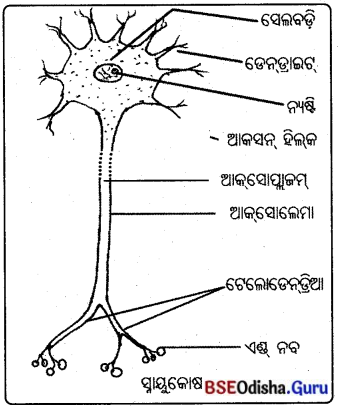
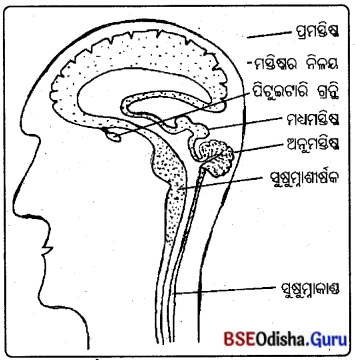
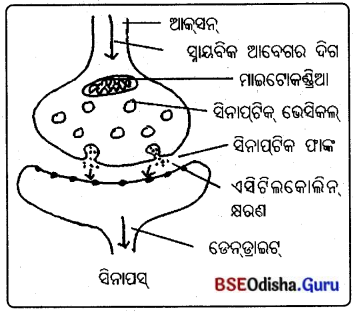
![]()
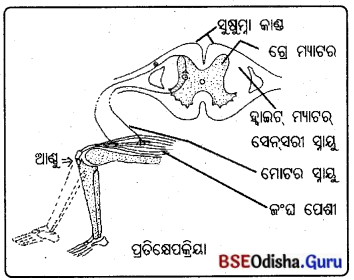
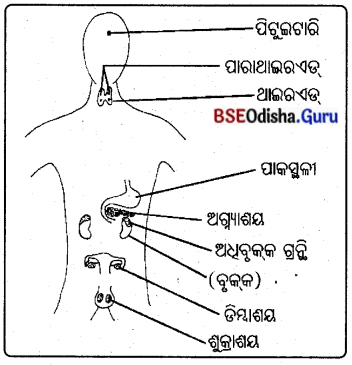
![]()
![]()
![]()
![]()
![]()

